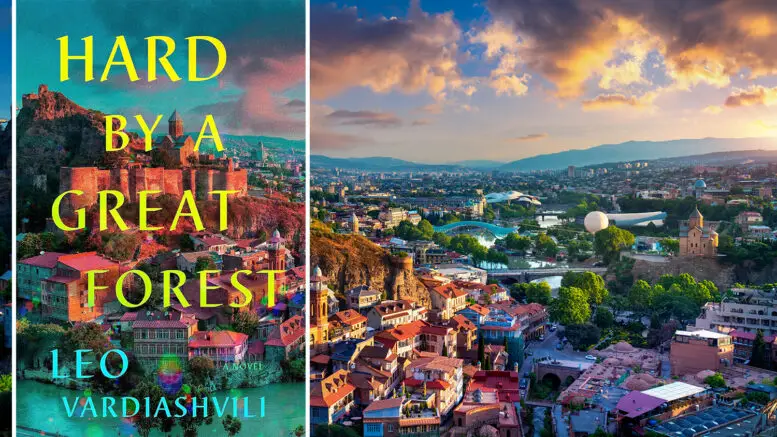Hard by a Great Forest, by Leo Vardiashvili, is a wonderful, horrible book.
The book is wonderful in that it presents believable, likeable characters who are continually placed in extraordinary situations. We are compelled to root for them as they move from one to the other and as we turn page after page.
The book is horrible because the extraordinary events the book tells us of are some of the worst horrors that exist – the horrors of war.
The characters move through the book, driven by love and compassion and almost invariably helped by those that they meet. These others are sympathetic to what the main characters are going through because these others are living through similar situations, or simply understand the injustice of it all. The characters’ goal through all 352 pages is to piece back together families torn apart and people ruined by wars that they had no part in other than to be present when and where they began.
Perhaps more horrible is that all the book’s events are based on history: The Georgian Civil War of 1991-1993 and the Russo-Georgian War of 2008. Even the absurdly comedic opening scenes are actually true; the book’s hero arrives back in Tbilisi, a home he fled as a child, to find the city flooded and populated by roaming exotic wild animals. This serves to pinpoint the book’s first events to June 2015, when a flood actually did free most of the population of the Tbilisi Zoo, leading to pandemonium in the city.
The characters are taken through darker and evermore absurd scenes that never-the-less accurately portray how conflicts impact and scar children, adults, families, and societies. Couched in fairy tale, folklore, and humor, the narrative buffers the reader somewhat from the horrors. We are also kept reading as the two main characters move through the tale, building friendship and trust that is tested but perseveres as they continually brush off setbacks in the pursuit of their commendable goals. However, the fact that their fictionalized story could very well be true remains at the forefront of the story.
Hard by a Great Forest is not for the faint of heart. However, it is an excellent read for anyone who wants to understand the people and geography of Georgia and its two breakaway regions. It is an excellent read for anyone who wants to understand the practical consequences of state violence and closed borders. It is also an excellent read for anyone who wants to know how far humanity can bend without breaking.
My one real warning to any foreign reader, it that you must keep from oversimplifying the tale. The events shown here are extraordinary – and not depictive of everyday life for Georgians. The wars still loom large in political life and continue to affect families and individuals. However, the Tbilisi of today is a warm and inviting city dotted with cafes and shops. The people of Georgia are, much as the book depicts, very proud of their culture and their traditional hospitality. I hope that the book’s success helps to only continue the growing interest in Georgia that has been shown in the West. I hope that it will drive readers to want to know better the great beauty that is Georgia.



